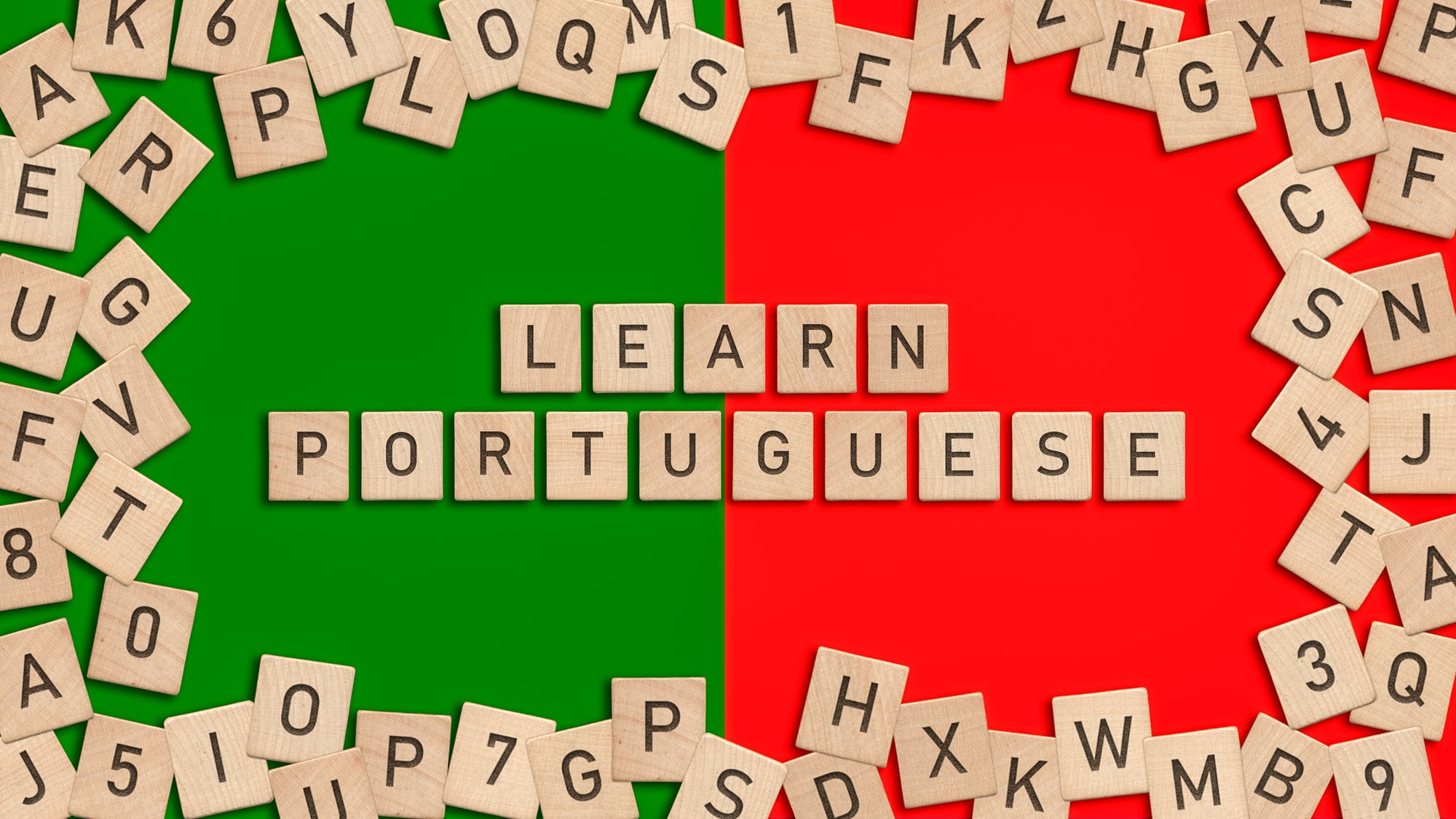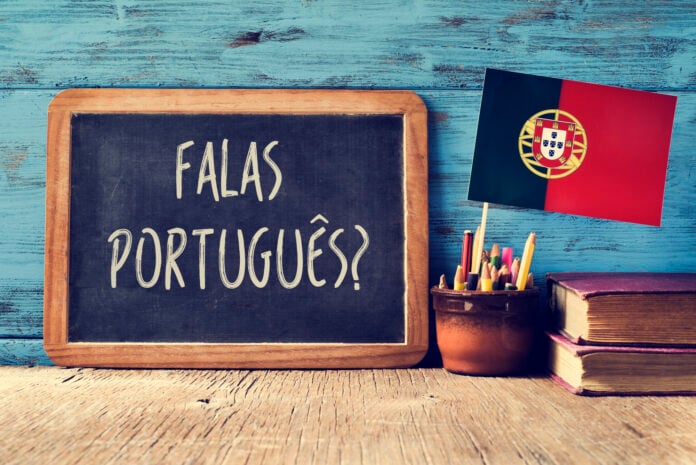If you’ve been learning Portuguese for a while, you’ve probably mastered the basics: how to order a coffee, ask for directions, or introduce yourself at a dinner party. But there comes a point in every language learner’s journey when they want to say more than “Where is the bathroom?” Maybe you want to share a memory, talk about your trip to Porto, or even recount a dream you had last night. In other words, you want to tell a story.
Storytelling is where language really comes alive. It helps you connect with people on a deeper level, express your personality, and truly experience the richness of a culture. But how do you move beyond basic sentences into fluid, expressive storytelling in Portuguese?
The secret? Conjunctions.
These humble little words are the glue that holds a story together. They give your tale rhythm, structure, and depth. In this article, we’ll introduce you to 16 essential conjunctions and transition words used in European Portuguese storytelling. You’ll find their English equivalents, examples of how to use them, and tips to help you sound like a natural. Are you ready? Let’s go!
1. Era uma vez – Once upon a time
Let’s start at the very beginning – literally. This is the classic opening line for fairy tales and stories, just like in English.
Example
Era uma vez uma senhora que vivia numa pequena casa à beira do rio.
“Once upon a time, there was a lady who lived in a small house by the river.”
Tip – Use “era uma vez” whenever you feel the need to “once upon a time” your friends, even when joking around with friends.
2. Depois – Then / Afterward
“Depois” is a time-based connector that helps you move the story forward.
Example
Fomos à praia e, depois, almoçámos num restaurante à beira-mar.
“We went to the beach and then had lunch at a seaside restaurant.”
Tip – Use this to create sequence. It’s simple, natural, and essential.
3. Entretanto – Meanwhile / In the meantime
This is perfect for describing parallel actions or switching points of view.
Example
Eu estava a cozinhar. Entretanto, o meu irmão arrumava a sala.
“I was cooking. Meanwhile, my brother was tidying up the living room.”
Tip – Great for storytelling with multiple characters or when setting up contrast.
4. A seguir – Next
Here is another handy phrase for moving things along in chronological order.
Example
A seguir, decidimos visitar o castelo antigo.
“Next, we decided to visit the old castle.”
Tip – Can be used interchangeably with “depois” in many contexts.
5. Então – So / Then
“Então” is wonderfully flexible—it can indicate time, consequence, or even introduce a new part of the story.
Example
Ela não apareceu. Então, decidimos começar sem ela.
“She didn’t show up. So, we decided to start without her.”
Tip – Listen for this in Portuguese conversations. It’s everywhere.
6. Por isso – Therefore / That’s why / So
This causal connector is key when you’re explaining consequences.
Example
Estava a chover muito, por isso ficámos em casa.
“It was raining a lot, so we stayed home.”
Tip – Think of “por isso” as the bridge between a cause and its effect.
7. Portanto – Therefore / So / Thus
This is a clear and logical way to connect ideas or explain consequences in your story.
Example
Estava cansada, portanto fui para casa mais cedo.
“I was tired, so I went home early.”
Tip – Use this when you want to explain the result of something that just happened. It’s slightly more formal than “por isso” and adds clarity and flow, especially in written or reflective storytelling.
8. No entanto – However / Nevertheless
Perfect for adding a twist or contradiction to your story.
Example
Tínhamos pouco dinheiro. No entanto, conseguimos fazer uma viagem incrível.
“We had little money. Nevertheless, we managed to take an amazing trip.”
Tip – Use this to show resilience or unexpected outcomes in your story.
9. Contudo – However / Nonetheless
Very similar to “no entanto,” but slightly more formal or literary.
Example
O caminho era difícil. Contudo, não desistimos.
“The path was difficult. Nonetheless, we didn’t give up.”
Tip – If you’re writing or telling a more serious story, “contudo” adds elegance.
10. Atualmente – Nowadays / Currently
Great for showing contrast between the past and present.
Example
Antigamente, era uma vila tranquila. Atualmente, é um destino turístico popular.
“In the past, it was a quiet village. Nowadays, it’s a popular tourist destination.”
Tip – Useful when shifting from a story to a reflection or moral.
11. Logo – As soon as / Right away / So
Context is key with “logo.” It can mean “soon” or “therefore” depending on usage.
Example
Logo que chegámos, começou a chover.
“As soon as we arrived, it started to rain.”
Tip – “Logo que” = “as soon as.” Without “que,” it may imply consequence as you can see in the following example:
Example
Ela não estudou para o exame. Logo, teve uma nota baixa.
“She didn’t study for the exam. Therefore, she got a low grade.”
12. Quando – When
An essential building block of nearly every narrative.
Example
Quando eu era criança, adorava brincar no jardim da minha avó.
“When I was a child, I loved playing in my grandmother’s garden.”
Tip – You can’t tell a story without “quando.” It’s indispensable.
13. Enquanto – While
Great for showing simultaneous events or long actions.
Example
Enquanto ele dormia, eu lia um livro.
“While he was sleeping, I was reading a book.”
Tip – Pairs beautifully with the imperfect tense in Portuguese.
14. Assim que – As soon as
Like “logo que,” this phrase helps move the story forward quickly.
Example
Assim que ouvi a notícia, liguei-te.
“As soon as I heard the news, I called you.”
Tip – Be ready to follow it with the past tense to express urgency or immediacy.
15. De repente – Suddenly
This one adds drama and surprise.
Example
Estávamos a conversar calmamente quando, de repente, o cão começou a ladrar sem parar.
“We were chatting calmly when, suddenly, the dog started barking nonstop.”
Tip – Drop this into your story for tension or comic effect.
16. Em resumo – In short / Overall
Perfect for wrapping up your story or summarizing key points.
Example
Em resumo, foi uma viagem cheia de surpresas e emoções.
“In short, it was a trip full of surprises and emotions.”
Tip – Use this to finish your story with a final reflection or conclusion.
Bonus Expressions for a Little More Storytelling Flair
While conjunctions are the framework, a few bonus phrases can spice things up:
- “Sabes o que aconteceu depois?” – “Do you know what happened next?”
- “Nem vais acreditar!” – “You won’t believe it!”
- “Foi aí que tudo mudou…” – “That’s when everything changed…”
These help add a sense of intrigue and keep your listener hooked.
Telling Your Own Stories
Now that you’ve got a toolbox of 16 essential storytelling conjunctions in European Portuguese, try using them in your own life. Retell something that happened to you yesterday. Describe your first day in Lisbon. Recreate a childhood memory.
Here’s a short sample story using several of the conjunctions you just learned:
Mini-Story Example
Era uma vez uma jovem chamada Inês que vivia numa aldeia pequena. Quando terminou a escola, decidiu viajar pelo mundo. Depois, foi para Itália, a seguir visitou a Grécia, e entretanto, conheceu pessoas maravilhosas.
Um dia, de repente, perdeu o passaporte. Estava desesperada. No entanto, um senhor simpático ajudou-a no consulado. Assim que recebeu os documentos novos, continuou a sua aventura.
Atualmente, Inês vive em Lisboa e trabalha como guia turística. Em resumo, descobriu o mundo…e também descobriu a si mesma.
English Translation
Once upon a time, there was a young woman named Inês who lived in a small village. When she finished school, she decided to travel the world. Then, she went to Italy, next she visited Greece, and meanwhile, she met wonderful people.
One day, suddenly, she lost her passport. She was desperate. However, a kind gentleman helped her at the consulate. As soon as she received her new documents, she continued her adventure.
Nowadays, Inês lives in Lisbon and works as a tour guide. In short, she discovered the world…and also discovered herself.
Final Thoughts
Learning to tell a story in Portuguese doesn’t require perfect grammar or a huge vocabulary. It requires confidence, curiosity, and just enough structure to get your point across. Conjunctions are the unsung heroes of storytelling, and once you get comfortable with them, you’ll find your Portuguese becoming more natural, expressive, and fun.
So, the next time someone asks you “Fala português?,” don’t just say yes.
Tell them a story.



